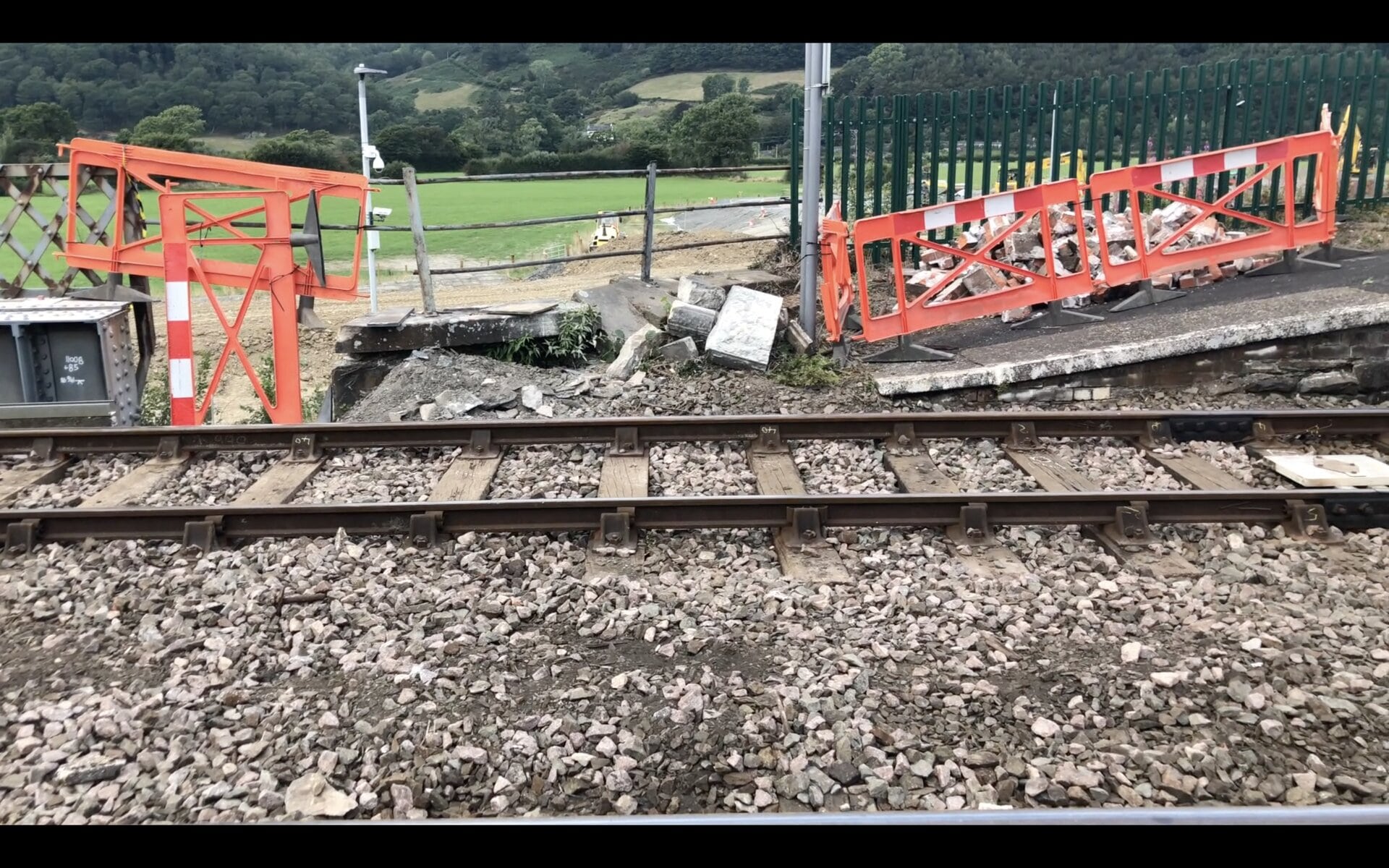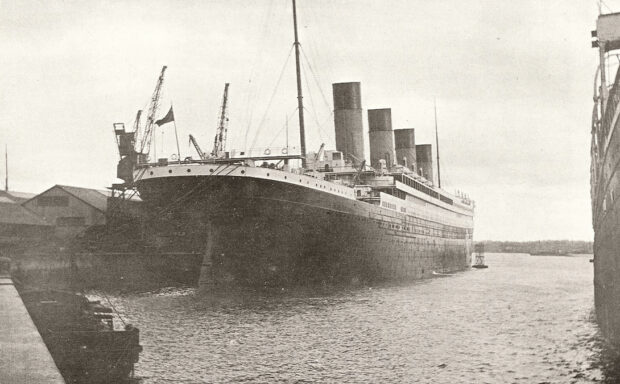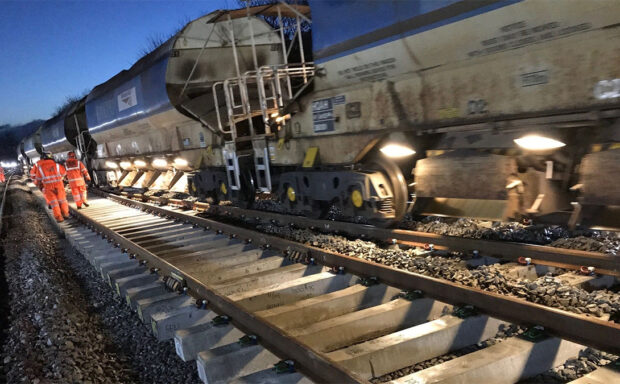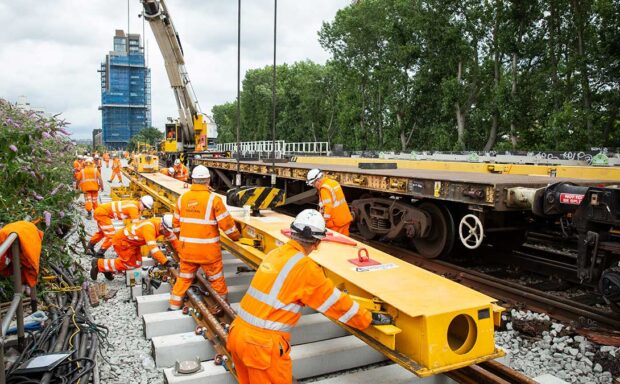Bridge strikes cost taxpayers millions of pounds and delay thousands of passengers and road users every year.
We caught up with Amy Liston, construction, who was dealing with a bridge strike at Machynlleth station, North Wales in September 2020.
What happened?
During the early morning rush hour on Wednesday 1 September, a tipper-lorry truck struck the railway bridge while in the up position.
This caused severe damage to the parapets, pilasters and the bearers on the bridge, which meant the railway bridge had to be immediately closed.
Amy and her team were on site hours after the strike to assess the damage.
Where is Machynlleth?
Machynlleth station is a vital station on the Cambrian Line in North Wales. Many people rely on this line to commute to work and to access the Cambrian Line, a transport link that goes all the way up and along the North Wales coast.
How was it resolved?
Thankfully, Amy and her team were able to keep part of the line open, operating bi-directionally, or running both ways on one side of track. This meant that a reduced service was able to run to and from the station while the team carried out the repairs.
It took Amy’s team seven days, working day and night, to fully reinstate the line. However, this came at a great cost to taxpayers and a weeklong disrupted service.
Bridge strikes across Britain:
Bridge strikes are still a major issue for us with five bridge strikes on average across Britain every day.
Between April 1 2020 and March 31 2021 there were 1,624 bridge strikes reported across our entire network. This cost more than £5.5 million in delay and cancellations fees, excluding repair fees, and caused major disruption for road traffic.




